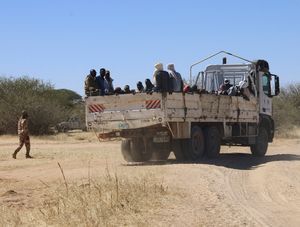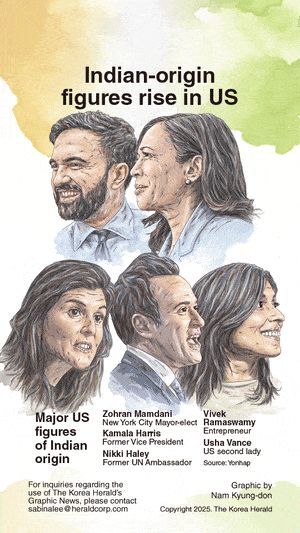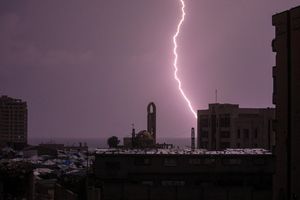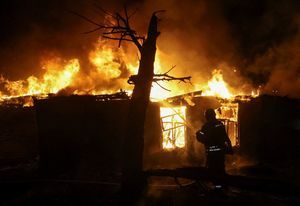![Iran]](https://contents-cdn.viewus.co.kr/image/2025/07/CP-2023-0309/30873431.jpg) TEHRAN, Iran (AFP) — Iran has no intention of abandoning its nuclear program, including uranium enrichment, despite the severe damage inflicted on its facilities by U.S. strikes, the country’s foreign minister declared ahead of renewed talks with European powers.
TEHRAN, Iran (AFP) — Iran has no intention of abandoning its nuclear program, including uranium enrichment, despite the severe damage inflicted on its facilities by U.S. strikes, the country’s foreign minister declared ahead of renewed talks with European powers.
This meeting will be the first since Iran’s 12-day conflict with Israel last month, during which the U.S. struck Tehran’s nuclear facilities.
Iran’s Foreign Minister Abbas Araghchi (Reuters-Yonhap) told Fox News’ Special Report with Bret Baier on Monday, “For now, enrichment is halted because, yes, the damage is serious and severe.”
“But obviously, we cannot give up enrichment because it is an achievement of our own scientists,” he continued, describing it as a source of national pride.
U.S. President Donald Trump responded to these comments on his platform Truth Social, asserting that Washington would strike again if necessary.
The 2015 agreement—negotiated between Iran and the permanent members of the UN Security Council (Britain, China, France, Russia, and the U.S.) along with Germany—imposed restrictions on Iran’s nuclear program in exchange for sanctions relief.
However, the deal collapsed in 2018 when the U.S., during Trump’s first term, unilaterally withdrew and reimposed sweeping sanctions.
Although Europe pledged continued support, a mechanism designed to offset U.S. sanctions never effectively materialized, forcing many Western companies to exit Iran and deepening its economic crisis.
“Iran holds the European parties responsible for negligence in implementing the agreement,” said Foreign Ministry spokesman Esmaeil Baqaei ahead of Friday’s talks in Istanbul on the deal’s future.
Iran will also host a trilateral meeting on Tuesday with representatives from China and Russia to discuss the nuclear issue and potential sanctions.
The Chinese Foreign Ministry stated that Beijing would “continue to play a constructive role in pushing relevant parties to restart dialogue and negotiations, and reach a solution that takes into account the legitimate concerns of all parties.”
In recent weeks, the three European powers have threatened to reimpose international sanctions on Tehran, accusing it of violating its nuclear commitments.
Germany announced that the Istanbul talks would be at the expert level, with the European trio, or E3, “working flat out to find a sustainable and verifiable diplomatic solution.”
“If no solution is reached by the end of August … the snapback also remains an option for the E3,” said Foreign Ministry spokesperson Martin Giese.
A clause in the 2015 agreement allows for UN sanctions on Iran to be reimposed through a snapback mechanism in the event of non-compliance.
However, the agreement expires in October, creating a tight deadline.
The International Atomic Energy Agency reports that Iran is the only non‐nuclear-armed country currently enriching uranium to 60 percent—far exceeding the 3.67 percent cap set by the 2015 accord.
This level is only a short step away from the 90 percent enrichment required for a nuclear weapon.
Baqaei told a news conference that using the snapback clause would be “meaningless, unjustifiable, and immoral,” arguing that Iran only began distancing itself from the agreement in response to Western non-compliance.
“Iran’s reduction of its commitments was carried out in accordance with the provisions outlined in the agreement,” he stated.
Western powers—led by the U.S. and supported by Israel—have long accused Tehran of secretly pursuing nuclear weapons.
Iran has consistently denied these allegations, asserting that its nuclear program is solely for civilian purposes, such as energy production.
Tehran and Washington engaged in five rounds of nuclear talks starting in April, but a planned meeting on June 15 was canceled after Israel launched strikes on Iran, triggering a 12-day conflict.
“At this stage, we have no intention of speaking with America,” Baqaei stated on Monday.
Israel initiated a wave of surprise strikes on its regional adversary on June 13, targeting key military and nuclear facilities.
The U.S. conducted its own strikes against Iran’s nuclear program on June 22, targeting the uranium enrichment facility at Fordo, located in Qom Province south of Tehran, as well as nuclear sites in Isfahan and Natanz.










Most Commented